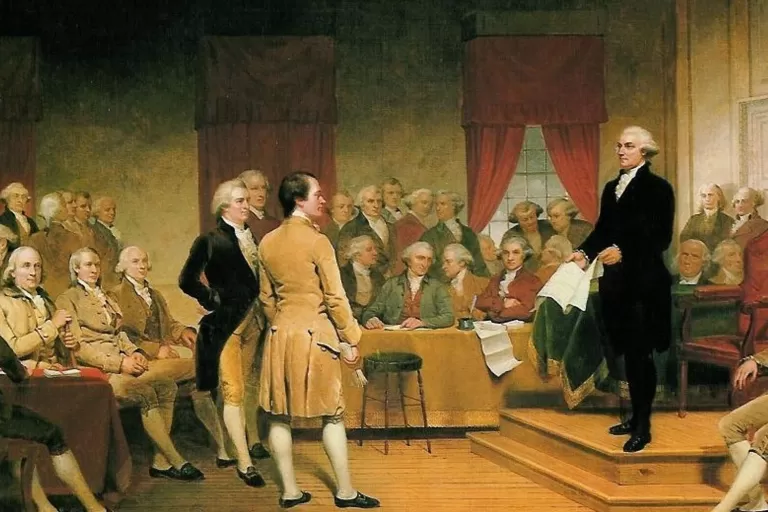
On May 30, 1787, a small group of men in Philadelphia changed the world.
Those men were the delegates to the Constitutional Convention. They created an officer of government on that date unlike any ever before, one destined to become the most powerful political figure in the world - the President of the United States.
“There must be one president,” they designed, “and not three.” The office would require energy, action, [and] decisiveness. And with only one, we would always know who’s responsible, and indeed once a year it was mandated that he report to us.
They were going to call him originally “His Excellency.” (Madison, p 523) But that wouldn’t do. The President of the United States is a man of the people, a leader among equals.
Four years they dictated that he would serve, and then he would be returned to his people. The Framers felt then that if he merited the people’s esteem, they could have him again. The only limit on his term, they felt, was the wisdom and love of his people.
For a time, they framers considered that the president would not receive a salary, but sometimes the best men are not wealthy men. But this much was certain: He was to serve for love and honor, not for love of money.
You know, the Framers put him under the most sacred oath – to preserve, protect, and defend – note it – the Constitution, not the nation. To save that document and its principles is to save this nation.
Never was the President of the United States to start a war. If the blood and money of the people are to be expended in war, let the people declare it. But once it’s declared, he is the Commander-in-Chief.
No law was ever to be imposed on us without his approval – no treaty that he did not negotiate. He was to be our voice to the nations, the executor of the law, the champion of our rights and liberties, and the guardian of all of us.
He alone was to be the nation’s voice of mercy and reason through the Pardon Power. All the chief officers of government who execute the law and judge it were to be his. He was to be, they felt, the one man in government above the pettiness of partisan politics, a man for us all.
So critical was his leadership, and so vital his virtue, that the Framers did not trust common people to find him. So they devised a system whereby the wise would select the wisest.
He had to be a native son, a fully imbued American, filled with wisdom, maturity, goodness, and integrity. He was to be our voice, our protector, [and] the great man of the people.
But he would be only as powerful as ‘we the people,’ and only as good as those who elected him. The nation would be for all time as safe and free as he was good, honest, and wise.
My friends, there are few men living today who can affect more people in a deeper way for a longer time than the President of the United States. Therefore, tomorrow, pray – for him and for our future.
Story Credits
Glenn Rawson – 13 February 2007
Music: Take Pride in America, track 8 (edited) – Mel and Brook Teeples
Song: Heal Our Land – The Janice Kapp Perry chorus and Three 2U

